- News
- Reviews
- Bikes
- Accessories
- Accessories - misc
- Computer mounts
- Bags
- Bar ends
- Bike bags & cases
- Bottle cages
- Bottles
- Cameras
- Car racks
- Child seats
- Computers
- Glasses
- GPS units
- Helmets
- Lights - front
- Lights - rear
- Lights - sets
- Locks
- Mirrors
- Mudguards
- Racks
- Pumps & CO2 inflators
- Puncture kits
- Reflectives
- Smart watches
- Stands and racks
- Trailers
- Clothing
- Components
- Bar tape & grips
- Bottom brackets
- Brake & gear cables
- Brake & STI levers
- Brake pads & spares
- Brakes
- Cassettes & freewheels
- Chains
- Chainsets & chainrings
- Derailleurs - front
- Derailleurs - rear
- Forks
- Gear levers & shifters
- Groupsets
- Handlebars & extensions
- Headsets
- Hubs
- Inner tubes
- Pedals
- Quick releases & skewers
- Saddles
- Seatposts
- Stems
- Wheels
- Tyres
- Health, fitness and nutrition
- Tools and workshop
- Miscellaneous
- Tubeless valves
- Buyers Guides
- Features
- Forum
- Recommends
- Podcast
review
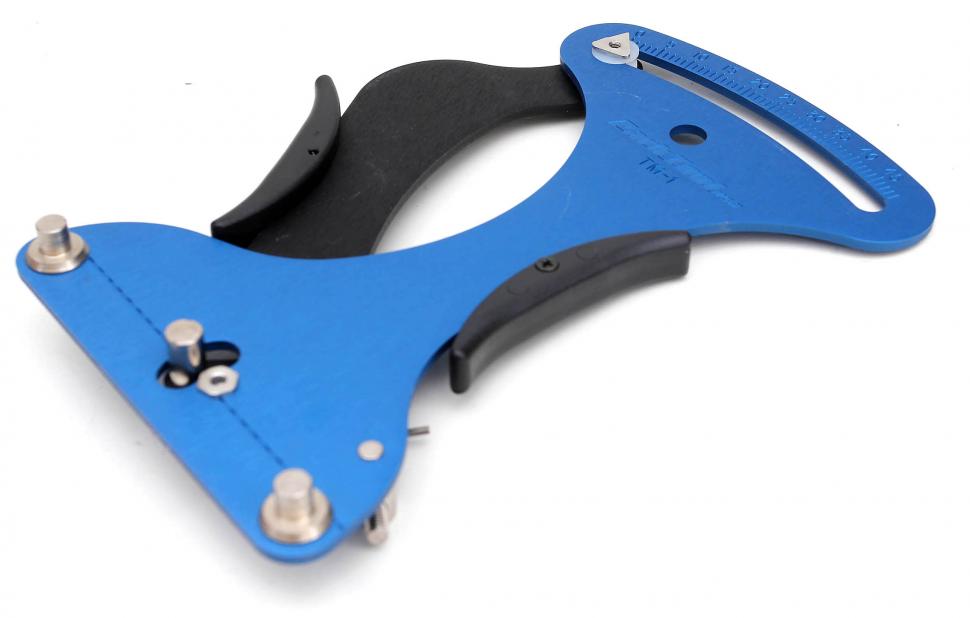 Park Tool TM1 spoke tension gauge
Park Tool TM1 spoke tension gauge£64.99
VERDICT:
Worthwhile companion to your truing jig if you like building your own hoops
Weight:
225g
Contact:
www.madison.co.uk
At road.cc every product is thoroughly tested for as long as it takes to get a proper insight into how well it works. Our reviewers are experienced cyclists that we trust to be objective. While we strive to ensure that opinions expressed are backed up by facts, reviews are by their nature an informed opinion, not a definitive verdict. We don't intentionally try to break anything (except locks) but we do try to look for weak points in any design. The overall score is not just an average of the other scores: it reflects both a product's function and value – with value determined by how a product compares with items of similar spec, quality, and price.
What the road.cc scores meanGood scores are more common than bad, because fortunately good products are more common than bad.
- Exceptional
- Excellent
- Very Good
- Good
- Quite good
- Average
- Not so good
- Poor
- Bad
- Appalling
If you get into building wheels and you're anything like me, you'll probably do the first couple in your bike frame with allen keys blu-tacked to the fork blades as primitive gauges. Form there it's a leap into the buying of a jig of some sort, and once you're at that point the next thing on your list should be a spoke tension gauge, like this one from Park.
The TM1 measures spoke tension by loading up the spoke between two static pins, with a third, sprung pin pressing down on the spoke and giving a readout. This is just a number from zero to 50; if you want to know the actual spoke tension there's a chart which maps that number to actual tension in different sorts of spoke. You get a circular measuring tool thrown in so you know what diameter of spoke you have.
Once you've had a look at your chart to see the acceptable range of numbers for a certain kind of spoke, you can set to work on your wheel. The TM1 is a valuable tool because it allows you to easily get the spoke tension even all the way round the wheel. Once the spokes are roughly tight and the rim central, it's a case of going round the wheel one spoke at a time and making sure that all the spokes on each side of the wheel have the same tension.
Obviously different dishing and spoke patterns can mean that the tension is quite different from one side to another, but if you can equalise spoke tension around the wheel then you'll invariably end up with a wheel that's more or less true, especially in the vertical plane where errors are more difficult to correct. Once you're happy with both the amount of tension and the fact that it's even, you can make the (normally minor) adjustments necessary to get the wheel perfectly in line.
Using the TM1 is simple: just clamp it on to the spoke and read the number. There's a couple of places to trap your fingers but you soon learn where they are, and to avoid them. If you fiddle around with the indicator when the gauge is in position it's possible to move it through quite a range, which made me worry a bit that it wasn't going to give repeatable results. But clamping a spoke and taking the first number the TM1 settles on does give a very consistent reading, plus or minus about 0.5 on the gauge. It's quick to use too, you can work round a wheel in no time and be confident that you haven't left any loose spokes.
It's not cheap at over £60, but it's less than the price of a new rim and spokes if your wheel falls apart, so if you're planning on building more than a few wheels it's a worthwhile addition to your workshop.
Verdict
Worthwhile companion to your truing jig if you like building your own hoops
road.cc test report
Make and model: Park Tool TM1 Spoke Tension Gague
Size tested: Blue/Black
Tell us what the product is for, and who it's aimed at. What do the manufacturers say about it? How does that compare to your own feelings about it?
They say: The TM-1 Tension Meter accurately and reliably measures the absolute tension of each of the spokes in a wheel, as well as the relative tension between all the spokes in a wheel. Easy to use and priced affordably, the TM-1 works on nearly any bicycle spokeno matter what the diameter, material, or shape. The TM-1 is for anyone building or truing wheels, diagnosing wheel problems, or assembling new bikes. It's a tool that belongs on every workbench."
We say: yeah, pretty much what they said. Except for the bit about everyone needing one.
Rate the product for quality of construction:
7/10
It's a fairly basic tool but it's solidly made
Rate the product for performance:
8/10
Gives simple repeatable spoke tension readings
Rate the product for durability:
9/10
It's solid enough to last and rebuildable
Rate the product for comfort, if applicable:
6/10
There's a couple of places to trap your fingers but you soon learn where they are
Rate the product for value:
6/10
Fairly expensive but it's a specialist tool
Tell us how the product performed overall when used for its designed purpose
Well
Tell us what you particularly liked about the product
Simple to use, repeatable results
Did you enjoy using the product? Yes
Would you consider buying the product? Yes
Would you recommend the product to a friend? Yes
About the tester
Age: 38 Height: 190cm Weight: 98kg
I usually ride: whatever I'm testing... My best bike is: Genesis Equilibrium with SRAM Apex
I've been riding for: 10-20 years I ride: Every day I would class myself as: Experienced
I regularly do the following types of riding: time trialling, cyclo cross, commuting, sportives, general fitness riding, fixed/singlespeed, mtb, Mountain Bike Bog Snorkelling, track
Dave is a founding father of road.cc, having previously worked on Cycling Plus and What Mountain Bike magazines back in the day. He also writes about e-bikes for our sister publication ebiketips. He's won three mountain bike bog snorkelling World Championships, and races at the back of the third cats.
Latest Comments
- Tom_77 6 min 3 sec ago
Did a Google image search on the picture at the top of the story, you can buy these from Amazon or eBay - shipped from China by the looks of it. It...
- mctrials23 7 min 46 sec ago
Are you sure about that? That sounds... unlikely. Thats 100km of height ie. 100,000m3 of atmosphere. Are you sure thats not just 1m3.
- Daddy Feebs 11 min 57 sec ago
Nice to see Bluesky comments, gradually overhauling ones from X. Bikesky seems a lot less toxic, and much, much more pro-active in espousing the...
- Rendel Harris 12 min 23 sec ago
Listing "not tubeless" as a bad point for a non-tubeless tyre is a bit peculiar, it's not for people who want a tubeless tyre. It seems rather like...
- Rendel Harris 28 min 16 sec ago
Agreed, and one would have thought that Girmay as the first black African to win a Tour stage and the first African of any colour to take a Tour...
- Secret_squirrel 31 min 10 sec ago
Can we tone down the hearing loss bollocks please. It makes you sound like the daily mail of cycling.
- quiff 47 min 39 sec ago
Don't think we're going to see these in the peleton any time. In fact, showing how it can also be used to slice your frankfurter is probably more...
- quiff 50 min 9 sec ago
I would quibble "designed to exclude", though it may be an unintended effect - I would say the snobbery is also firmly tongue in cheek.
- quiff 59 min 43 sec ago
Maybe not any more, but it seems to be inspired by crap Halfords mountain bikes of the nineties.
- hawkinspeter 2 hours 5 min ago
Related topic of "School Streets": https://www.bristolpost.co.uk/news/bristol-news/more-bristol-schools-added-list-9798050
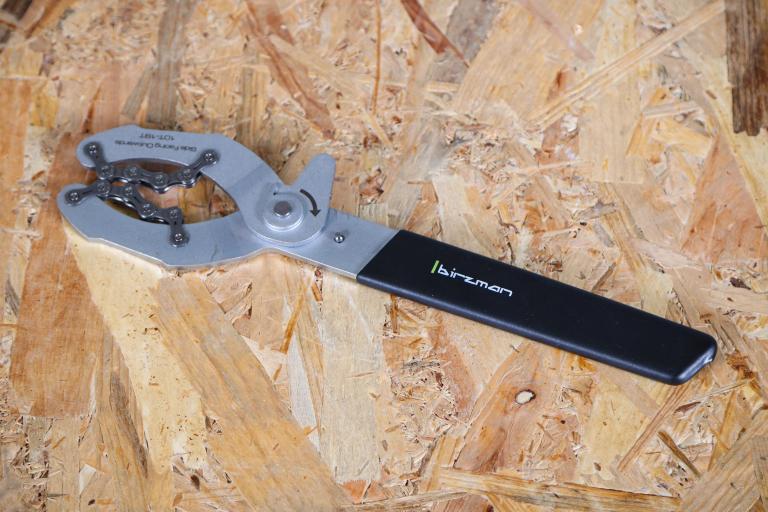
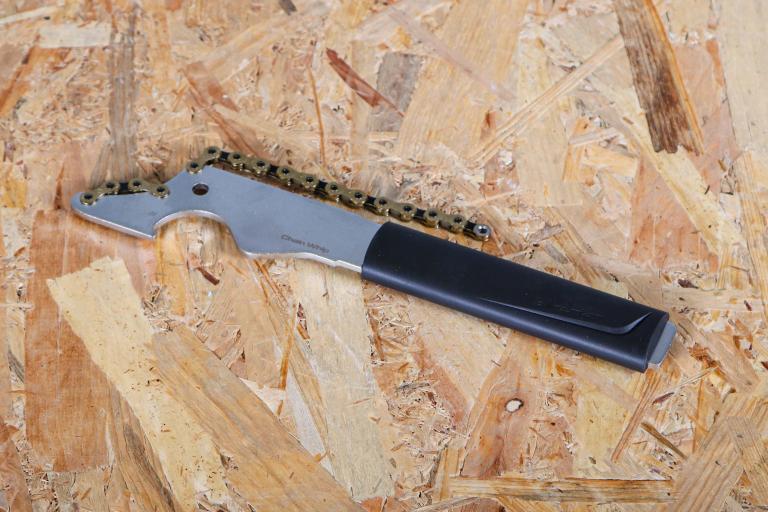
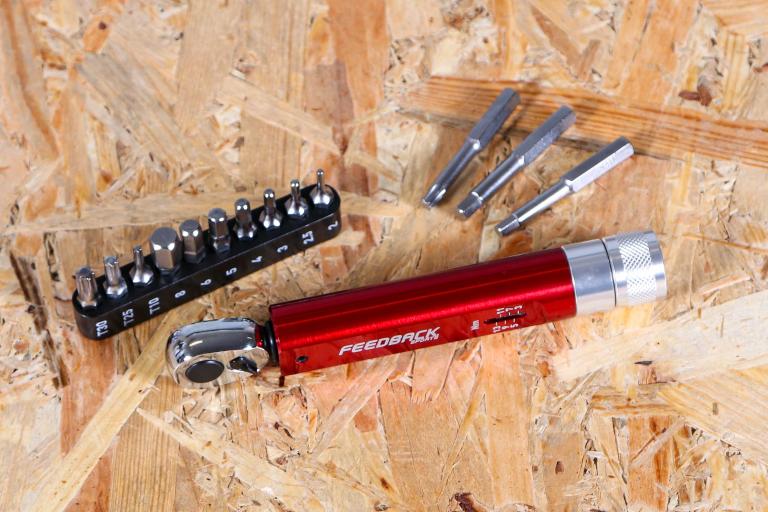
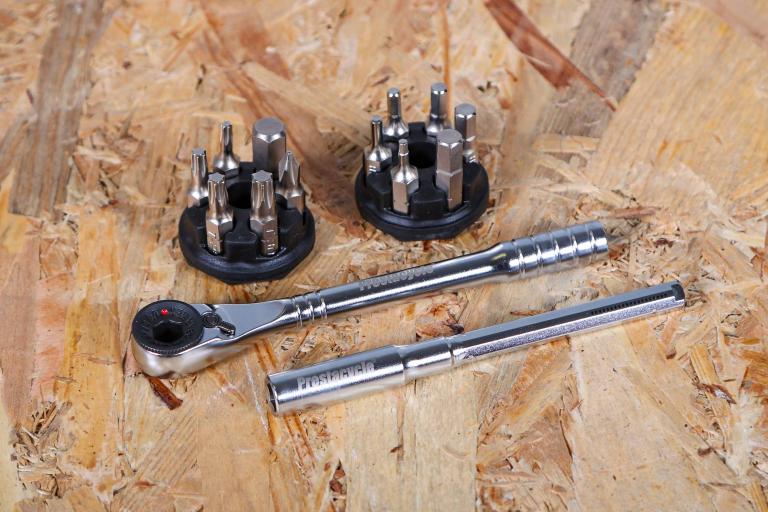
Add new comment
4 comments